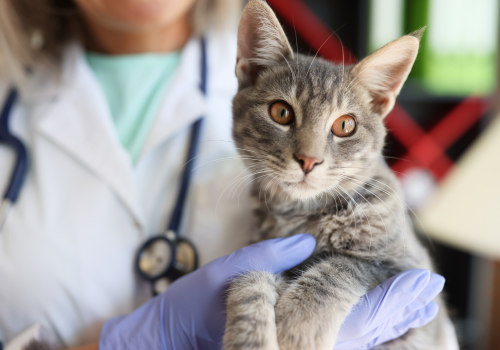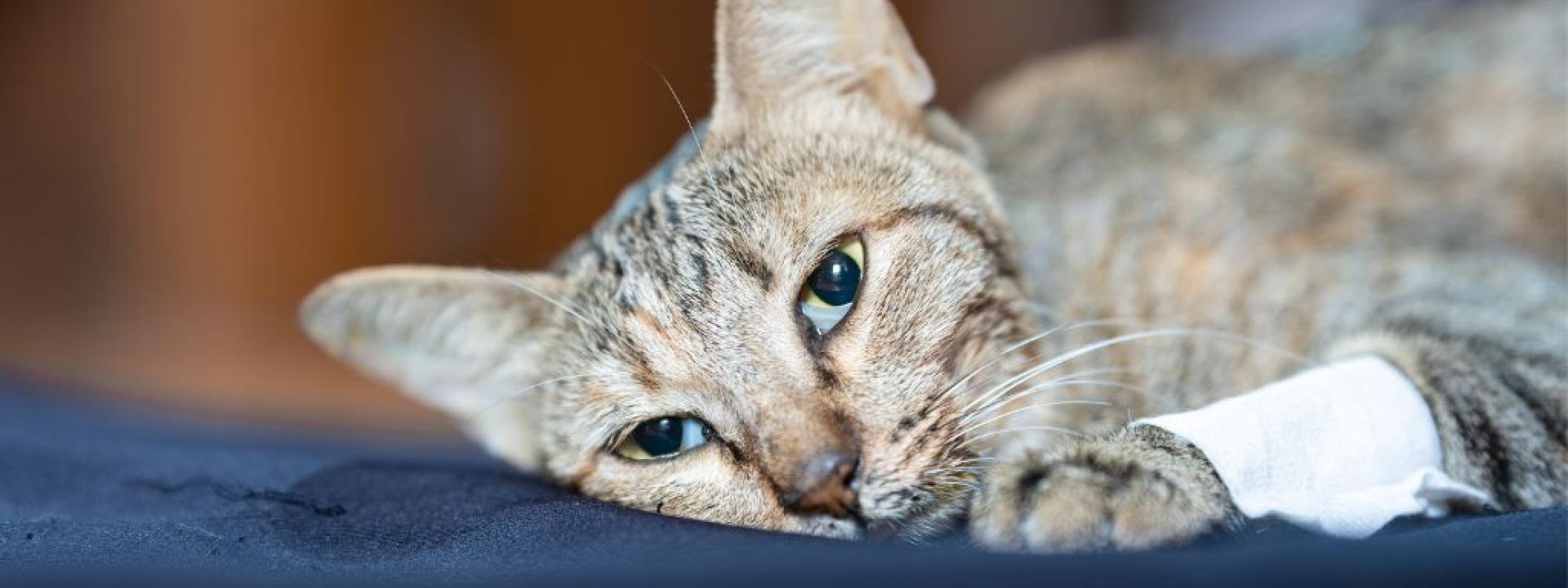The unfortunate reality is that one in five cats will develop cancer in their lifetimes. Thankfully, all is not lost, as we can treat some forms of feline cancer, particularly if you’ve caught it early. If you suspect that your cat may have cancer, please contact your veterinarian right away, as time is of the essence. If your veterinarian has already told you that your cat has cancer, you probably hopped online to get more information, and we’re glad you found us! At Veterinary Medical Center, we work hard to bring you facts that you can trust, particularly with serious topics such as cancer. We’ve taken the most FAQs about cat cancer and answered them as thoroughly and accurately as possible.
If you’re looking for a highly trained veterinarian in Union City, CA, we’d love to ensure your cat is getting the best treatment possible for their cancer, so please call us at (510) 441-8500.
What is cat cancer?
Cat cancer is similar to human cancer in that it's a cell in the body that decides it will proliferate unchecked, an abnormal population of cells.
How will cancer affect my cat's health and quality of life?
Cancer in cats will often decrease their eating, so they start losing weight rapidly, stop grooming, and hide. Those are some things that a cat might show. However, many different syndromes and diseases in cats will also show those signs, so it’s always best to take your cat to the veterinarian to get a proper diagnosis.
Just as in humans, cancer comes in many forms.

Some forms of cancer in cats are:
- Mast cell cancer
- Lymphoma
- Skin cancer
- Squamous cell carcinoma
- Bone cancer
- Lung cancer
It depends on the type of cancer and its location as to how it will impact your cat's life. Some are very aggressive and happen fast, and others are slow-growing. So it varies tremendously with the type of cancer it is, but regardless, it's not good, and we need to catch it early.
What are some of the most common types of cat cancer, and what would their symptoms be?
Lymphoma is a common cancer in cats, which is intestinal lymphoma in felines. They can have it in other places, but it’s generally intestinal. There’s also squamous cell carcinoma, sarcoma, tumors of the mouth, and things like that. Soft tissue sarcomas are very common in cats, which are tumors of connective tissues. Veterinarians will see squamous cell carcinoma in lighter-colored cats on ear tips and on faces, in throats, and even on tongues. This kind of cancer may be UV radiation or solar radiation-induced. There is also bone cancer, lung cancer, and occasionally mast cell disease, which can be in the skin or the spleen.
The symptoms of cancer in cats are typically appetite loss, accompanying weight loss, and hiding. Lymphoma seems to prefer the intestinal tract of cats, with that, you'll have vomiting and diarrhea.
Why is early detection and diagnosis important for cats?
Early detection is always helpful. I think we all know in humans why it's crucial, as it's better to find a small tumor than it is to find a large tumor. Early diagnosis is especially critical for cats. The earlier that you can diagnose cancer, the more apt we veterinarians are able to remove something if it's, indeed, removable. Also, the cat hasn’t lost as much body condition. Early on, they're feeling their best. They'll tolerate surgery, chemotherapy, or whatever treatment we choose much better early on. And they’ll likely respond to it better because it's early.
During an oral exam, your veterinarian might find a tiny bump on your cat's tongue or somewhere on the roof of their mouth, which may be a very early sign of cancer. As veterinarians, we’d much rather find it that way than have it show up a year later, and now the cat is drooling, they have a huge mass on their tongue, and our options are more limited. If your cat's vomiting due to lymphoma, we can put some felines into remission and sometimes even cure it. So it really does help if we can catch things earlier. So the annual exam is critical (twice a year for older cats), and certainly, if you see anything out of the ordinary, bring your cat in for an exam.
Why is it so important to avoid self-diagnosing your cat with cancer?
It’s critical to avoid self-diagnosing in felines because cats hide everything until the last minute, and they show similar signs in nearly every syndrome. So it may be something like an anal sac abscess or something simple like that, but you still shouldn't try to diagnose cancer on your own. You should have your cat evaluated, and annual blood work is essential.
Why is it so important to avoid self-diagnosing cancer in your cat?
We can't look at a tumor and tell you what type it is. So if you're self-diagnosing that way, by looking at something and saying whether you think it's benign or not benign, it is impossible to tell. We have to get a diagnosis, requiring x-rays, biopsies, blood work, and sometimes abdominal ultrasounds. Getting a diagnosis is the first step in our ability to cure it. It's certainly going to help with the quality of life.

How will a veterinarian diagnose cancer in my cat?
A veterinarian will occasionally find cancer as part of the exam. They can palpate a kitty, feel the belly, and sometimes find an enlarged spleen or tumor in the intestine. More often, however, the diagnosis will come from owners saying, "Hey, something's not right with my cat." Remember, cats are really good at hiding illness. If your cat shows any signs of weight loss, eating a little bit less, hiding more, or certainly if you feel a lump or bump, see your veterinarian. If your cat is vomiting more frequently, has blood in their stool or urine, or has difficulty urinating, any of these can be signs of cancer or other kinds of illness.
If my cat does have cancer, what type of treatment options may be recommended?
The most important task for us is to get a diagnosis of the type of cancer. Depending on what we come up with, we will determine whether we will recommend surgery or chemotherapy. So it just depends on the cancer type.
The AVMA and AAHA have also released joint guidelines on feline preventive care you can refer to for further information. If you live in or near Union City, CA, we’d love to see your cat to get them on a thorough preventive care plan that you can give you peace of mind, so please don’t hesitate to call us at (510) 441-8500 or email us at [email protected].

